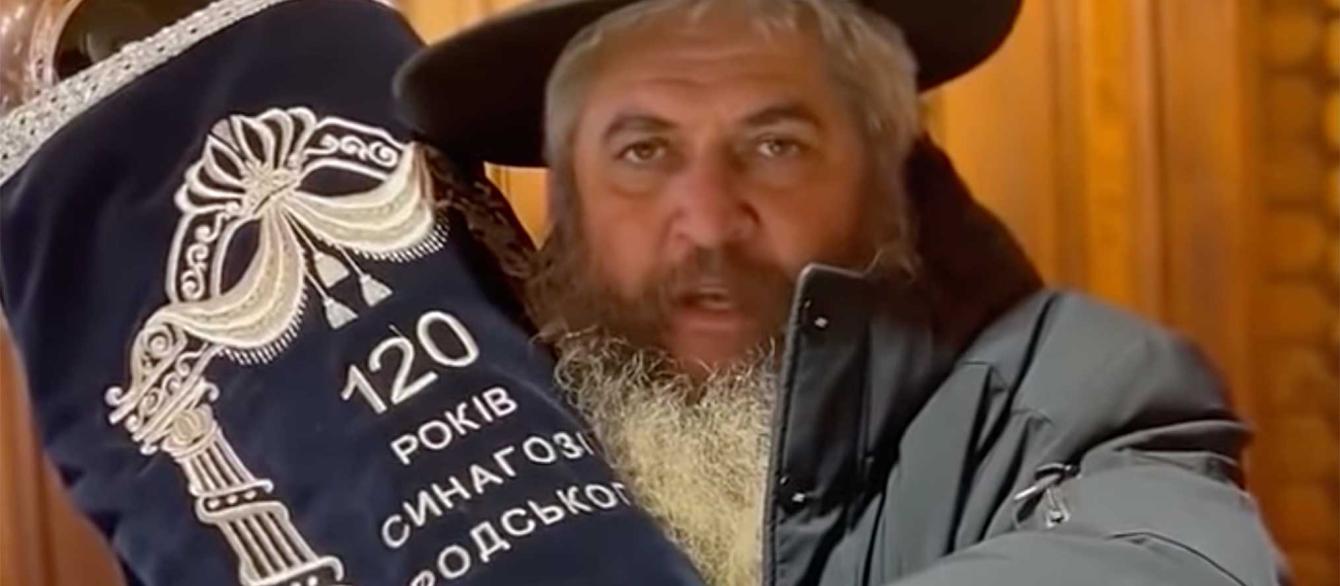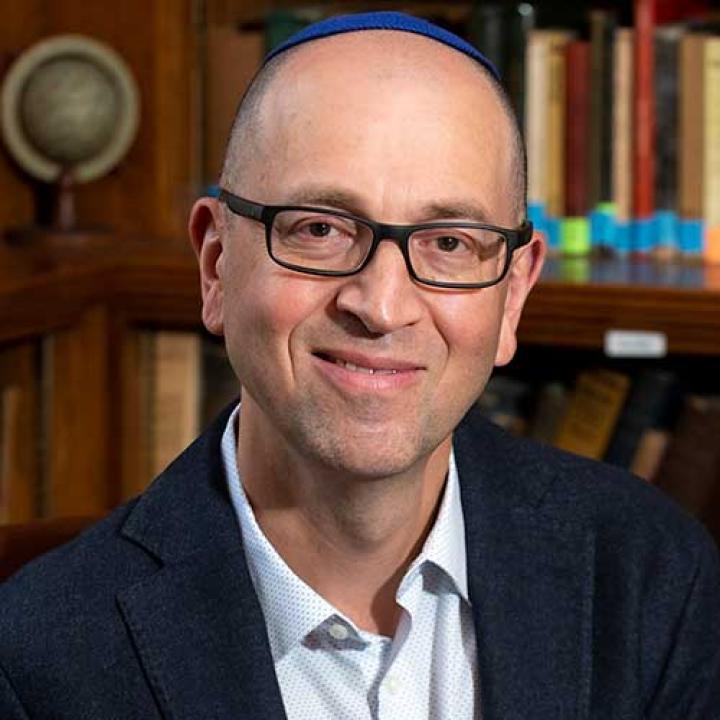On March 1, 2022, Rabbi Moshe Reuven Asman, the Chabad-Lubavitch rabbi of the Brodsky Choral Synagogue in Kyiv, recorded and made public a video appeal “to the rabbis of Russia, to the Jews of Russia, and simply the Russian people.” “Stop the war,” Rabbi Asman said in the opening. Then he admonished his audiences about the coverage of the invasion by Russia’s media: “Do not watch what they tell you on TV, they are lying. War crimes are happening here” (here and hereafter my literal translations—M.D.S.).
It was the second week of the war in Ukraine, and for wards of Soviet history like the one typing these lines, the push of Putin’s troops to overrun the defenders of Kyiv called to mind the failed attempt of Hitler’s armies to take Moscow in the late autumn of 1941. Earlier on that day, Russian missiles had fallen near the Babyn Yar memorial, site of the Shoah’s largest single massacre by bullet, and the ashen-faced Rabbi Asman choked back tears and pressed a Torah scroll to his breast as if it were a rescued child. A Ukrainian child of Judaism suffering under Putin’s bombs.
Born in 1966 in Leningrad (St. Petersburg), as a young man Rabbi Asman had tasted of refusenikdom, made aliyah in 1987, studied in yeshivas in Israel, and served in the Israeli Defense Force. When he returned to the post-Soviet space in 1995, it was not to his native city but to Kyiv. In October 2005 Rabbi Asman began to call himself Chief Rabbi of Ukraine, which resulted in controversy and in a power struggle with the Kyiv-based Rabbi Yaakov Dov Bleich of the Karlin-Stoliner Hasidic dynasty, and also with another Chabad-Lubavitch rabbi, Jonathan Markovitch, the Chief Rabbi of Kyiv and the official shliach(emissary) of the Lubavitcher Rebbe. It is worth pointing out that Rabbi Asman’s history of denouncing Russian aggression predated Russia’s invasion of Ukraine on February 24, 2022, and went back to 2014 and the conflict in Donbas.
Read More
The full text of this article (parts 1, 2, and 3) is available via The Times of Israel.






